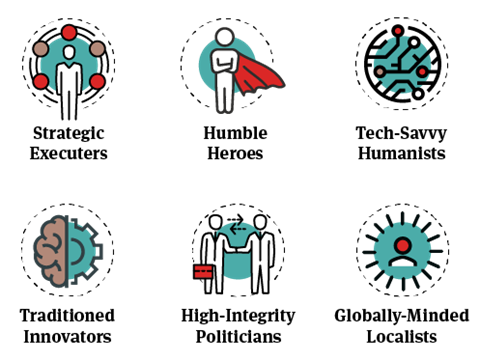
Publication
Navigating international trade and tariffs
Impacts of evolving trade regulations and compliance risks


Author:
Global | Publication | June 2022
This is the 17th article in our Transforming Workplace series focusing on ‘work from anywhere’ and hybrid work.
In our earlier article “Leadership Reimagined” we explored why employees’ expectations of their leaders have changed, and why organisations need to upgrade leaders’ skills and behaviours.
We will now examine how organisations can upskill their leaders to meet the specific leadership challenges arising from ‘work from anywhere’ and hybrid work arrangements.
It has become clear that “managing remote workers differs greatly from managing in-house workers”1 and many organisations are therefore aware that ‘work from anywhere’ means they need to upskill their leaders:
 |
|
 |
|
The critical challenge facing organisations is deciding how to upskill their current and future leadership team. This challenge is complicated by the “new skills and capabilities” required for leaders to “succeed in the post-pandemic era.”4
Organisations are now asking much more from their leaders in ‘work from anywhere / hybrid’ workplaces, and one view is that leaders need to be upskilled with this “wide range of paradoxical characteristics:”4

If we accept that organisations need to upskill their current and future leaders with some or all of these comprehensive leadership characteristics, how should organisations start this upskilling process?
One solution is to adopt Gartner’s “roadmap … to reshape … leadership for a sustainable hybrid workplace.”5 This roadmap is centred on Gartner’s theory that true Human Leadership comprises three leadership components:5

However, Gartner also cautions that organisations should be aware that three “types of leaders prevent true Human Leadership:”5
 |
|
 |
|
 |
|
Returning to Gartner’s roadmap to reshape leadership, the roadmap has three distinct phases:5

We consider that Gartner’s “12-month roadmap to reshape … leadership for a sustainable hybrid workplace”5 offers an excellent framework for organisations to develop a tailored program to upskill their current and future leadership team.
Norton Rose Fulbright assists organisations to efficiently and effectively address the legal aspects of the new global work environment, including ‘working from anywhere’ and hybrid work. Please reach out if we can assist your organisation in this respect.
Subscribe and stay up to date with the latest legal news, information and events . . .
© Norton Rose Fulbright LLP 2025